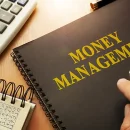6 Lessons from the Market’s Reaction to the Coronavirus Outbreak

The world may be an uncertain place to live right now. Countries all over the planet have been put under lockdown, flights are parked in airports, retail markets are shut, and schools have been forced to conduct online classes. The future is hard to predict at this time with no preventive vaccine in place. While the entire world awaits good news, the one fruitful thing that people can resort to at this time is to learn from this incident and implement the lessons they learn in their lives for the better. The COVID 19 may be a novel virus pandemic to hit the world, but it comes with many environmental, social, and financial lessons that can pave the way for future growth. Here are six lessons from the market’s reaction to the Coronavirus outbreak that investors should learn.
Table of Contents
1. It is hard to control a company’s stock price in the short run
A sudden global crisis can have massive implications on a company’s stocks. The Coronavirus showed us how many US based businesses that operate worldwide had to be shut in order to flatten the curve and control the spread of the virus. Company stocks are highly volatile in the short run, and it is hard to predict how they react to market and economic fluctuations. For example, Starbucks, a leading American coffee chain that operates in several countries around the world, including China, had to shut 50% of its operations in China due to the virus. The Starbucks’ outlets have been closed since January 28th, bringing the company’s stock prices down to 8%. The coffee chain was one of the leading names in the world, and its sudden downfall in stock price shows how risky individual company stocks can be in the short term.
2. The future is more important than the past
Most investors look at past trends while investing. However, this may be a time to focus on the future rather than the past. With airlines being put out of business, the stock price of oil has also fallen and is likely to go down further. It is essential for investors to predict the changes in the future and understand how one thing impacts the other. With no flights, the demand for oil will eventually drop too. So people with active investments in Companies like Exxon Mobil or Chevron may experience losses.
3. A contingency fund is the most critical aspect of a financial fund
The stock market is an unpredictable place, but it’s times like these that prove just how volatile the market can be. The most profitable sectors like oil, gas, gold, etc. that are usually considered the most viable investments have now hit an all time low. With plummeting investments, the younger generations may be at ease but people nearing retirement in a few years can find themselves in a frenzy. Having a contingency fund for emergencies can help investors override the losses from their investments and give them room to let the market recover. It is also crucial to cover the health expenses of a pandemic.
4. A diversified portfolio is vital in times like these
A balanced investment of short term and long term stocks and bonds is the ideal combination in a portfolio regardless of the investor’s age. Not diversifying your portfolio can be detrimental in times like these. Moreover, the stock market is not the only place to invest, and investors must not limit themselves to the stock market alone. There are more than one ways to diversify. The risk element in the stock market is always high. This is why one must also explore other forms of investing like bond markets, commodity markets, and currency markets.
5. Passive investing is not always the best thing
Passive investing has been pitched to investors by financial journals as something that can ease their life and allow them time to pursue other goals rather than timing the market. However, the truth remains that passive investing does not always function according to the goals of the investor. The financial companies offering the instruments to invest are not governed by the profit or loss made by investors. They run on the commission and fees paid by people. Investor returns have little impact on their earnings. This is why active investing is touted to be more beneficial. It may be time consuming and individuals will be required to time the market constantly, but the investors will also have the full liberty to manage their funds as they see fit.
6. This too shall pass
Pandemics and health crises are not a novel phenomenon. They have been occurring for centuries. Even the last decade has seen many outbreaks starting with the Swine Flu in 2009, the MERS outbreak in 2013, Ebola in 2014, and Zika in 2016. The economic impact of all of these has been as detrimental just as their health repercussions. However, their market reactions have been short-lived. Statistics also show that the S&P 500 was back to +14.15% growth after 12 months of an outbreak. While investors may need to make short term alterations to their financial plans, their long term goals are likely to remain unaffected.
To sum it up
While it is vital to follow these lessons, it is also essential for people to not panic. Investors should not take any drastic steps at the moment or be worried about the short term losses. They should let the market recover in due time and then follow these lessons to effectively ride the tides of change.
If you have questions about these uncertain times and need professional guidance on how to invest in a pandemic, you can reach out to financial advisors.



















